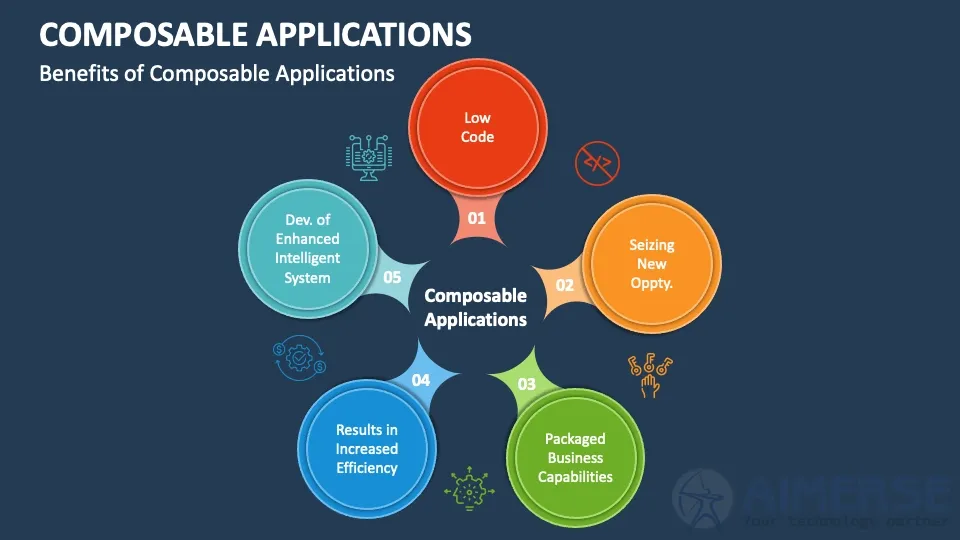Composable Applications: Building Flexible and Scalable Software Solutions
Understanding Composable Applications
Benefits of Composable Applications
-
Flexibility: In reaction to changes in the market or emerging technology, modular components are swiftly added, deleted, or altered.
-
Scalability: Systems that use supplementary or upgraded parts can scale quite well without redesigning the entire application.
-
Accelerated Development: Existing parts are reused, so the process is faster, accelerating feature and application development to hit the market.
-
Cost Efficiency: Development and maintenance costs decrease considerably with reusable components and third-party service usage.
Implementing Composable Applications
-
Adopt a Modular Architecture: Design of software systems of discrete modules that can work independently but can meld harmoniously.
-
Ensure Interoperability: Use standardized interfaces and protocols to enable all diverse components to communicate.
-
Agile Methodologies: Agile practices shall be adopted for iterative development and continuous integration of the components.
-
Invest in Governance: Clear guidelines for component development, integration, and maintenance shall be developed so that the integrity and performance of the system are retained.
Challenges and Considerations
-
Complexity Management: To manage multiple components properly, strong management is required to avoid any integration issues, and the cohesiveness of functionality should be ensured.
-
Security Risks: It is a must to have proper security reviews since the composition of components sourced from different sources may lead to several vulnerabilities.
-
Data Consistency: Proper synchronization and data management methods are required to achieve data consistency throughout several components.
Conclusion
Orgs now use module architecture to enhance their agility, reduce costs, or innovate faster as companies adapt to increasing business challenges and new opportunities arising each day.
Aimerse Technologies develops module applications as per your demand. If your business demands are of Python, Django, Laravel, Java, Spring Boot, Node.js, React.js, or Node.js, we will provide scalability and seamless integration. Utilize composability for further success.











